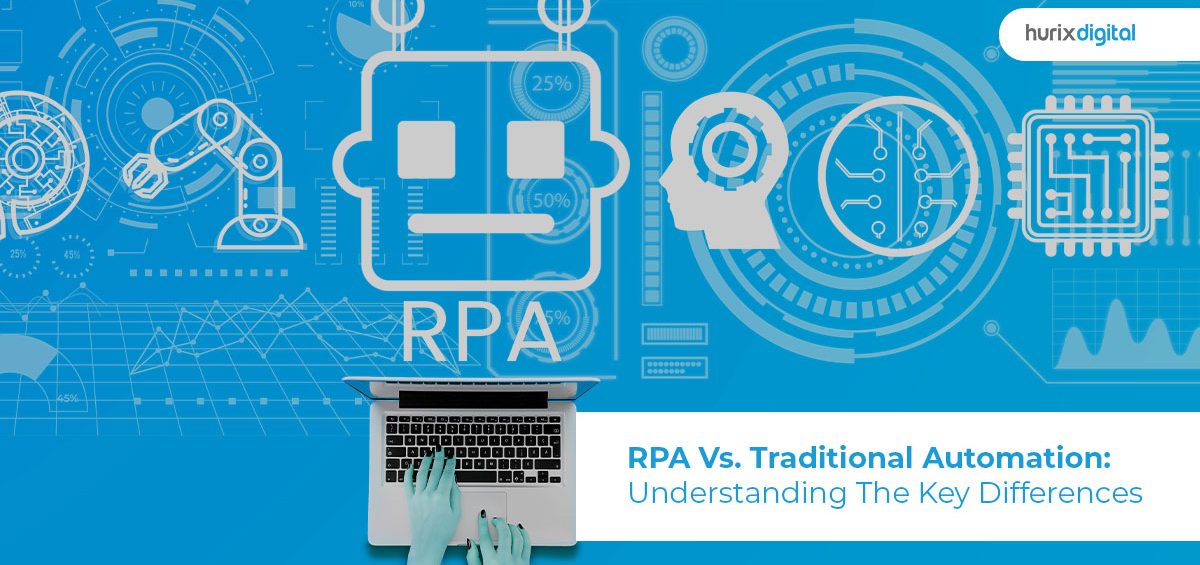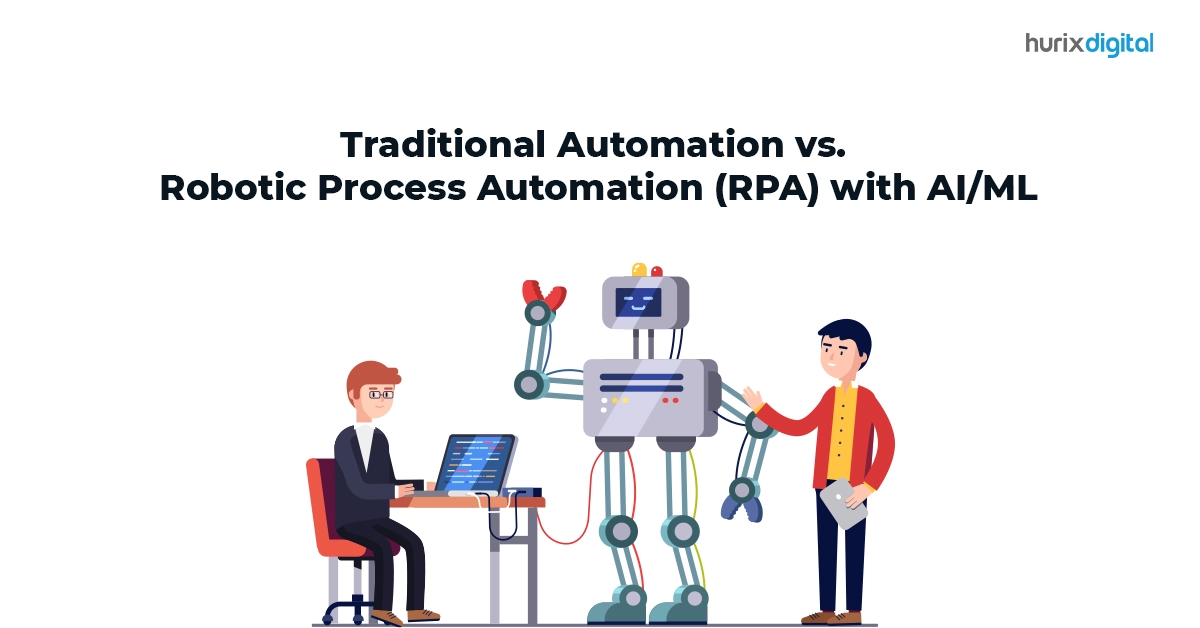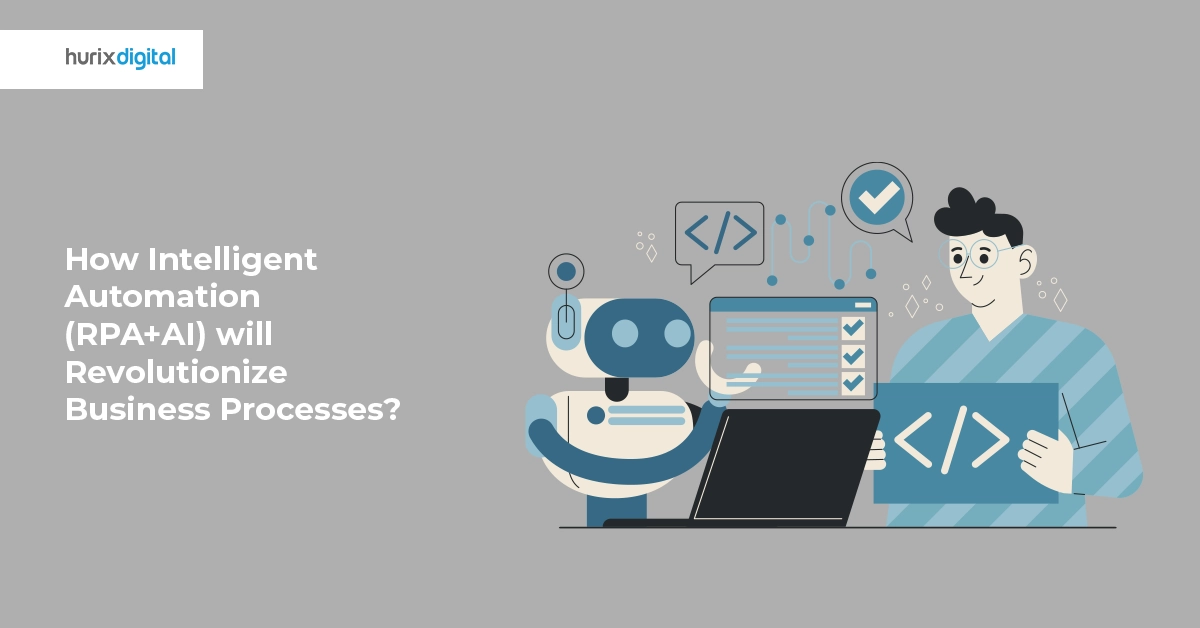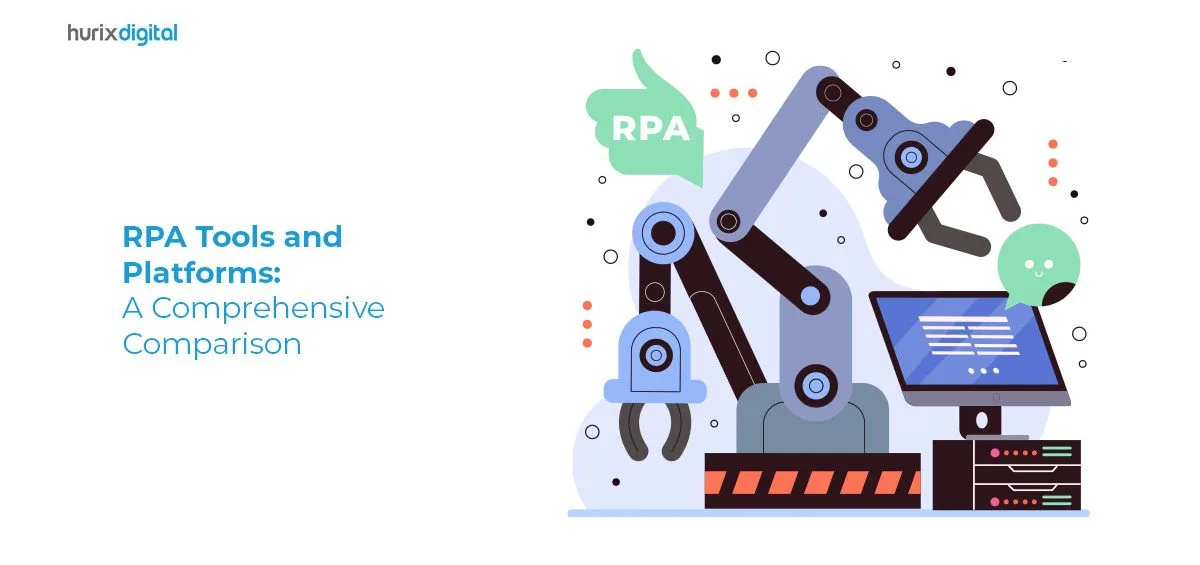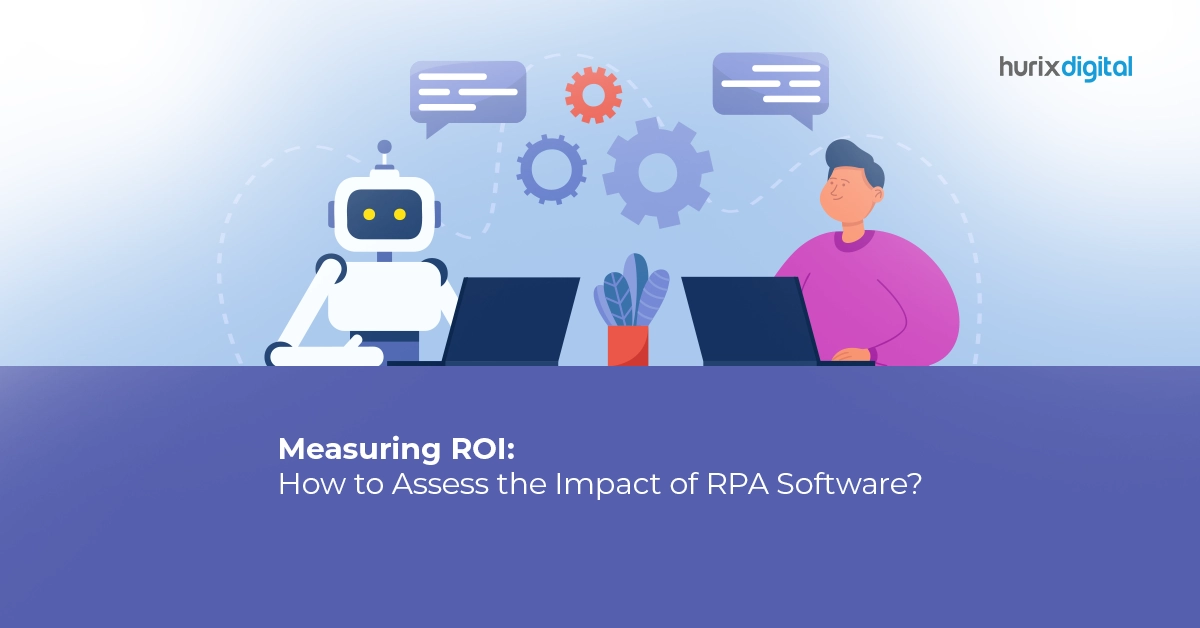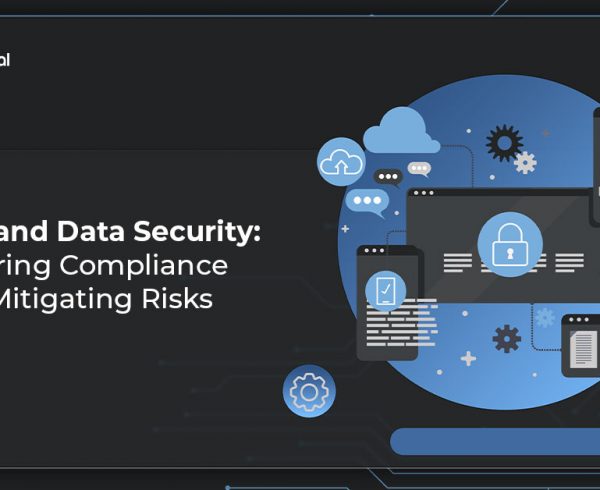Summary
This blog discussed the major differences between robotic process automation and traditional automation. It also provided a brief overview of the key aspects of the two types of automation.
The market for robotic process automation is experiencing an unprecedented boom, given the conveniences and improvement in efficiency that it facilitates. According to a report by Polaris Market Research, the software automation tools would rise by a CAGR of 37.5% between 2023 and 2032.
But what is robotic process automation, and how does it differ from traditional automation?
Traditional automation allows for the execution of repetitive tasks based on a set of predetermined rules and instructions that are straightforward. You can think of it as writing a program that would follow your prescribed protocol when a set of conditions is met.
On the other hand, robotic process automation deals with the high volume of tasks that can be automated through:
- Determining complex algorithmic rules for tasks.
- Leveraging the power of artificial intelligence and machine learning to help the process improve itself.
- Delegating administrative and clerical tasks to intelligent software bots.
You can consider workflow automation as the next level improvement over traditional automation – a smarter, quicker method of automation that yields better results and has a wider scope of application.
Through this blog, you will learn the differences between robotic process automation and traditional automation.
Table of Contents
- Top 9 Major Differences Between Robotic Process Automation and Traditional Automation
1. Ease of integration
2. Ease of scalability
3. Implementation Timeline
4. Human Actions
5. Customizations
6. Cost
7. Accuracy
8. Skill Level Requirements
9. Infrastructure - Conclusion
Top 9 Major Differences Between Robotic Process Automation and Traditional Automation
Aside from the level of complication in the autonomy algorithms, RPA tools differ from traditional automation tools in nine major aspects:
1.Ease of Integration
Traditional automation is a legacy technology that needs juggling to integrate properly with your existing systems. You may need new infrastructure or dedicated APIs to make them work as they should.
On the other hand, business process automation tools are a modern technology with high integrability. These tools can be adjusted seamlessly into the existing workflows and systems environment, requiring little to no modifications for implementation.
Being the newer, more efficient technology, RPA tools are quicker to integrate and adopt.
Also Read: How RPAs are used for Business Automation?
2. Ease of Scalability
Traditional automation systems are a string of programs written to allow for automated tasking across your existing IT infrastructure. In case your business is looking at scaling its operations up, you may be required to invest significant time and effort to rewrite these automation programs to span the new IT landscape.
On the other hand, robotic process automation tools are equipped with AI-based algorithms that adjust the automation scale based on your business’s requirements.
3. Implementation Timeline
While both kinds of automation implementations require some time to implement, implementing an RPA system is significantly faster than traditional automation.
This is because RPA tools sit on top of your existing systems, pulling and collating data from the departments necessary to execute the task at hand.
However, traditional automation systems require integration at the fabric level, requiring months to achieve implementation accompanied by feasibility studies for the right program design and other key aspects for bug-free automation.
4. Human Actions
Human actions signify the quality or capability of a program or algorithm to execute a task as a human would do it.
Traditional automation systems were reverse-wired – they required human initiation to determine the execution protocol before the program could do anything autonomously.
On the other hand, modern software bots have intelligent algorithms that learn from human input and imitate that behavior while executing tasks. In a way, they can imitate humans by way of machine learning.
5. Customizations
With RPA tools, businesses get extreme customizability for a wide range of tasks across all business processes. You can create custom software bots to handle specific tasks and synchronize the output with the whole process within minutes.
On the other hand, traditional bots require APIs and programming to write code that controls their behavior. This limits the customizations that can be achieved within a certain time limit, and the input of resources would also be relatively higher.
Also Read: How to Create and Deliver the Best Custom Employee Training Program
6. Cost
Any new tool or tackle that is adopted in an organization comes with its associated costs and risks. When looking at RPA tools versus traditional automation, the upfront costs for RPA may be higher.
With that said, RPA doesn’t require much expense to be operated. Once it has been configured and implemented, it saves an organization tremendous time and cost concerning human resources.
Traditional automation is easy to initiate, but the operational costs, time, and resources that it needs to remain operational are significantly higher.
7. Accuracy
Needless to say, RPA tools are more accurate than traditional automation. This is because the software bots handle most administrative, clerical, or repetitive tasks and leave little room for human error.
Traditional automation techniques are highly reliant on coding that humans have written. It is inevitable for a few errors to creep in and impact the output’s accuracy, preciseness, and efficiency as a result.
The element of AI and ML in RPA makes these systems more accurate.
8. Skill Level Requirements
Programming is not easy – and writing a program for business process automation most definitely requires a high level of coding skills.
Not all businesses today are willing to busy up their coding professionals for writing automation programs, especially when RPA tools are readily available for workflow automation.
The fact that implementing RPA tools does not require a high level of IT skills makes them extremely convenient to use straight off the shelf.
9. Infrastructure
Traditional automation is a technique that demands higher CPU and memory usage, given the bulk of its code. The more complicated an automation program gets, the more processing room it requires on infrastructure.
Businesses may need to invest in more machines if traditional automation requires scaling up.
On the other hand, RPA tools offer lightweight virtual software bots that do not block the CPU and memory by executing the tasks in a virtual space rather than requiring physical infrastructure.
Conclusion
Automation tools have helped improve the quality and output of business processes significantly. With the emergence of modernized RPA automation tools, it is a prudent decision to switch from legacy, traditional systems to RPA tools.
Your business can easily achieve the transition with help from Hurix Digital, a digital services company that helps strategize for RPA automation and implement custom automation solutions at your organization.
To know more, visit Hurix Digital.


